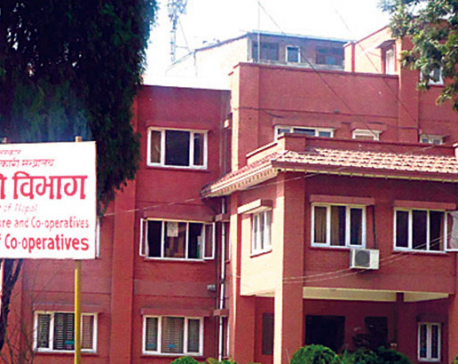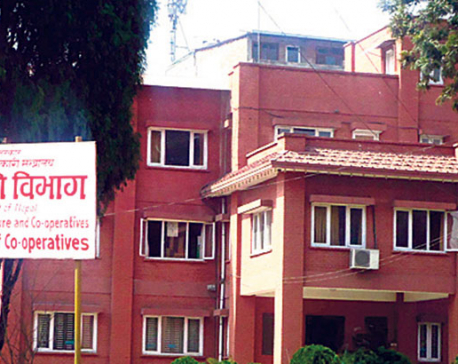
OR
Cooperatives and insurance businesses are now under the ambit of anti-money laundering law
Published On: July 27, 2021 07:00 AM NPT By: Republica | @RepublicaNepal

KATHMANDU, July 27: Insurance businesses and cooperatives with larger transactions are now required to abide by the anti-money laundering (AML) system as the regulators of these sectors have asked these businesses to come within the framework from the fiscal year 2021/22.
Insurance and cooperatives are among the fastest growing sectors of Nepali economy. According to the Insurance Board (IB), the premium collection in the sectors stood more than Rs 150 billion in the last fiscal year. Out of the total amount, premium of Rs 120.95 was collected by the life insurers while Rs 30.07 billion was collected by the non-life insurance companies.
As of last January, cooperatives have been mobilizing deposits of around Rs 480 billion collected from their members, according to the data released by the Department of Cooperatives (DoC). Similarly, 29,886 cooperatives operating in the country have invested Rs 426.26 billion in loans.
However, these sectors are suspected to have been used by those earning money from illegal businesses to channelize their money due to lack of effective monitoring. The enforcement of the laws governing anti-money laundering is expected to check the black money to be mobilized through these businesses.
According to the DoC, it has asked the cooperatives that mobilize more than Rs 100 million deposit collections of their members to install software goAML, an anti-money laundering system, since the beginning of the fiscal year 2021/22. The new fiscal year began from July 16 this year.
With the new rule in place, these cooperatives will have to report their Threshold Transactions Reports (TTR) and Suspicious Transactions Report (STR) at the Financial Information Unit (FIU) under Nepal Rastra Bank on a periodic basis.
Similarly, the IB has also asked the country’s insurers to implement the goAML software by mid-August this year. It has been suspected that the buyers of insurance policies in larger amounts and surrendering insurance policies in a short time period could have been mobilizing the money earned from illegal businesses.
With the rule in place, the insurers will also have to report about their suspicious transactions to the FIU of the central bank.
You May Like This

Six individuals arrested for stealing Rs 3 million from 11 cooperatives
KATHMANDU, April 22: A group of six individuals has been apprehended for their alleged involvement in stealing from cooperatives in... Read More...

DoC bars cooperatives from issuing loan to realty businesses
KATHMANDU, August 17: The Department of Cooperatives (DoC) has barred cooperatives from issuing loans in real estate businesses, citing soaring liquidity... Read More...

Ceiling for interest rate of credits of cooperatives fixed at 16%
KATHMANDU, Aug 3: The government has capped the lending rate for cooperatives at 16%. ... Read More...





Just In
- World Malaria Day: Foreign returnees more susceptible to the vector-borne disease
- MoEST seeks EC’s help in identifying teachers linked to political parties
- 70 community and national forests affected by fire in Parbat till Wednesday
- NEPSE loses 3.24 points, while daily turnover inclines to Rs 2.36 billion
- Pak Embassy awards scholarships to 180 Nepali students
- President Paudel approves mobilization of army personnel for by-elections security
- Bhajang and Ilam by-elections: 69 polling stations classified as ‘highly sensitive’
- Karnali CM Kandel secures vote of confidence














Leave A Comment